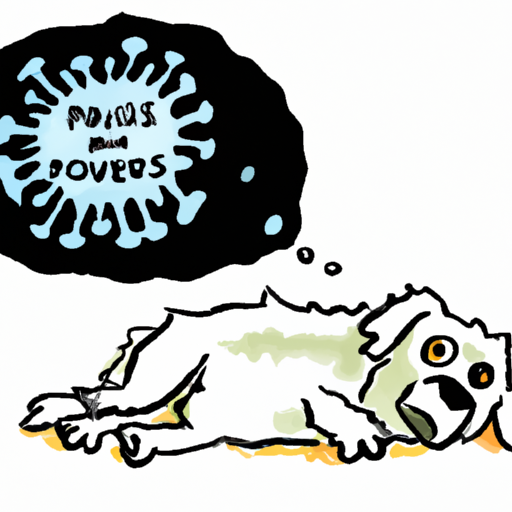Understanding Parvo: A Silent Killer
You may have heard about Parvo, a highly contagious virus that primarily affects puppies. But do you know what it does to your beloved canine? Parvo, short for Canine Parvovirus, is a deadly disease that attacks the dog’s immune system, leaving them weak and vulnerable.
How Parvo Affects Your Dog
Parvo targets the fastest growing cells in your dog’s body, which are usually found in the intestine and bone marrow. A Parvo-infected dog will show severe symptoms like:
- High fever
- Vomiting
- Severe diarrhea, often bloody
- Lethargy
- Loss of appetite
These symptoms can lead to severe dehydration and secondary infections, which can further complicate the dog’s health status.
The Transmission of Parvo
Parvo is an extremely contagious virus. It spreads either through direct contact with an infected dog, or indirectly, by the feces of an infected dog. The scary part is that the virus can live in the environment for months, making it almost impossible to completely eradicate.
| Ways of Transmission | Prevention Measures |
|---|---|
| Direct contact with infected dog | Avoid areas with unknown dogs |
| Indirect contact through feces | Regularly clean and disinfect your dog’s environment |
Treatment and Prevention of Parvo
When it comes to Parvo, prevention is certainly better than cure. Vaccination is the most effective way to protect your dog from this deadly virus. If your dog contracts the virus, immediate veterinary care is essential. Intravenous fluids and antibiotics are commonly used to treat the symptoms and control secondary infections.
- Prevention Measures:
- Regular vaccination
- Avoid high-risk areas
-
Maintain good hygiene
-
Treatment Measures:
- Immediate veterinary care
- Intravenous fluids
- Antibiotics
The Long-Term Effects of Parvo
Even if your dog survives Parvo, this doesn’t mean they’re out of the woods. The virus can cause long-term damage to the heart and other organs, and can even lead to chronic health problems like myocarditis or dilated cardiomyopathy.
Frequently Asked Questions
Q: How long does Parvo last in dogs?
A: The acute phase of the disease usually lasts for 5-7 days, but the virus can remain in the feces for up to two weeks after recovery.
Q: Can a vaccinated dog get Parvo?
A: Yes, but it’s rare. Vaccination greatly reduces the risk, but it doesn’t completely eliminate it.
Q: Can humans get Parvo from dogs?
A: No, Canine Parvovirus cannot be transmitted to humans.
Q: How can I protect my dog from Parvo?
A: Regular vaccination, good hygiene, and avoidance of high-risk areas are your best defenses.
As a caregiver, you play a crucial role in your dog’s health. By understanding Parvo, how it affects your dog, and how to prevent it, you’re taking important steps to ensure the wellbeing of your beloved pet. Remember, an ounce of prevention is worth a pound of cure.



